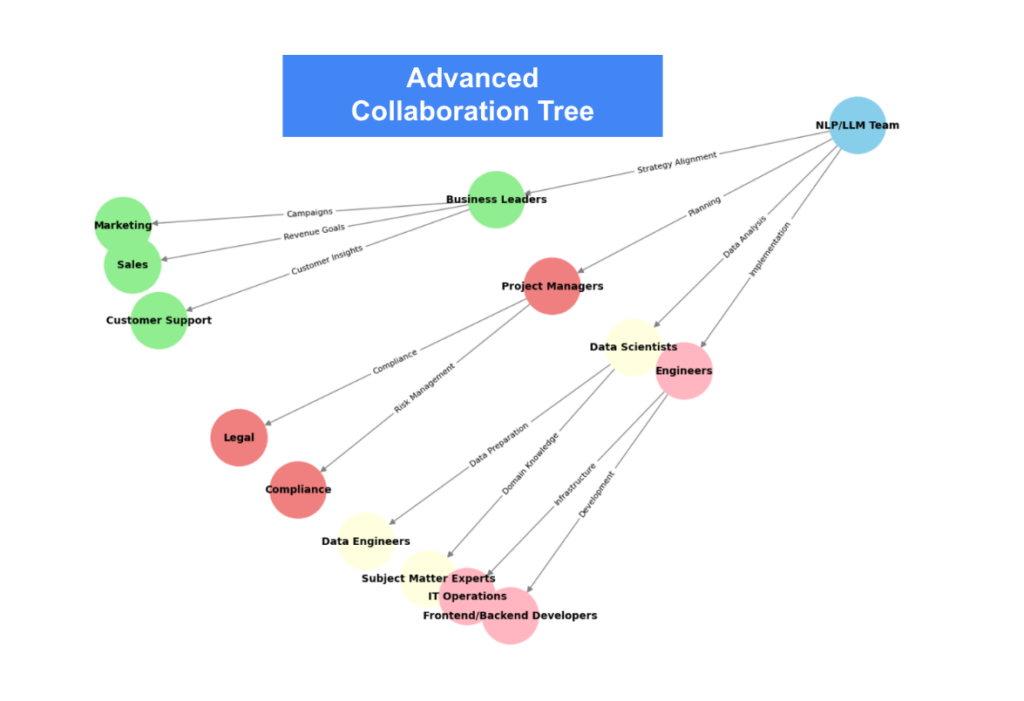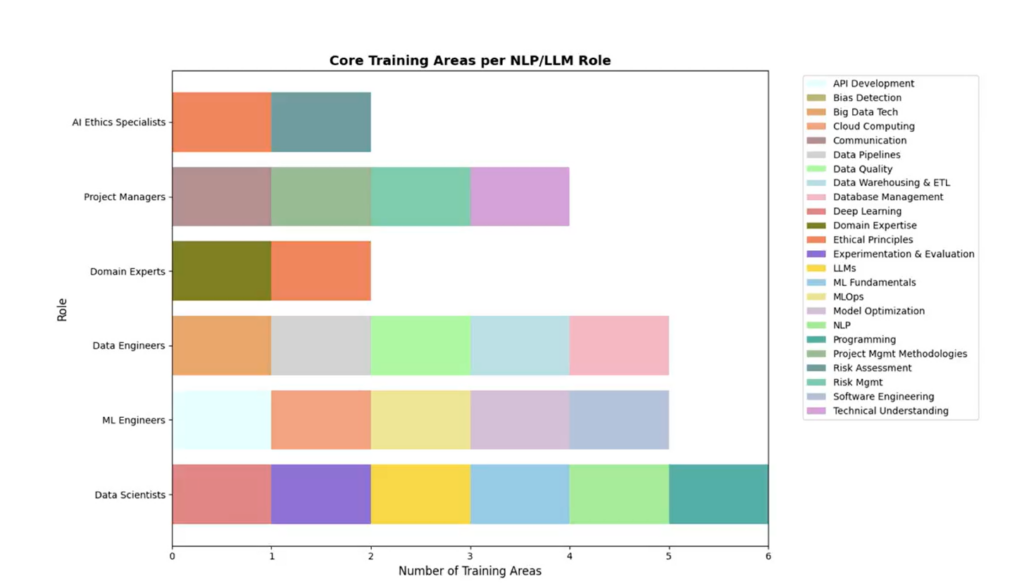Chief AI Officer (CAIO) is equipped with a combination of technical expertise, business acumen, and leadership skills.
Rolling out AI tools like Copilot and ChatGPT in a company doesn’t automatically boost performance. While it may seem straightforward to adopt these technologies, the real question is whether they genuinely add value to your team?
Successfully deploying and leveraging AI requires much more than just installing new software. It demands careful planning, a clear strategic vision, and a blend of specialized skills and technology to ensure meaningful results. As illustrated by industry experience, effective AI adoption calls for a diverse mix of expertise-including data scientists, engineers, process analysts, and change management professionals-to handle everything from data integration and security to workflow redesign and employee training:

The digram below shows the expertise needed in each area to support and develop AI:

Without this comprehensive approach, organizations risk falling short of their goals for cost savings, performance improvements, and long-term growth. In short, the path to AI-driven prosperity is complex and requires coordinated effort across strategy, technology, and people. However, with the right strategy and by leveraging correct resources and implementation approach (Build vs. Buy vs. Partner), even small companies can benefit from AI and achieve successful implementations.
With years of experience as an IT leader and technologist, I can help make AI deployment feasible and effective, ensuring that your organization realizes the full potential of these transformative technologies as fast as possible.
Here’s a summary of key points that I consider in transforming vision into sustainable results-driving, resilience, and a thriving company culture when it comes to AI:
Long-term Vision and Industry Knowledge
- Develop a long-term AI roadmap that anticipates future trends
- Stay updated with the latest AI research, tools, and applications
- Adapt strategies to evolving market dynamics
Business-First Mindset
- Understand industry dynamics and business models
- Identify key challenges and leadership expectations
- Analyze risks, focusing on strategic considerations, costs, and skills availability
- Prioritize initiatives based on their potential impact
Ethical Considerations
- Embed ethical principles into every stage of the AI lifecycle.
- Address issues such as bias, fairness, transparency, and privacy.
- Demonstrate knowledge of global and industry-specific AI regulations.

- Outline an approach to building an ethical framework.
Cybersecurity Considerations
Data Categorization and Classification are crucial for safeguarding sensitive information. Implementing Data Loss Prevention (DLP) systems and sensitivity labels ensures that AI-accessed or generated data is only available to authorized users. This approach effectively protects valuable information assets and maintains data security across an organization.
Other considerations on Cybersecurity are:
- Securing AI systems and AI models
- Cyber threat detection
- Accountability and Transparency
Behavioral Considerations
- behavioral questions related to:
- Leadership and conflict resolution
- Managing complex organizational dynamics
- Aligning diverse stakeholders
- Influencing C-suite executives
- Gaining buy-in for AI initiatives
- Develop critical thinking and decision-making skills
- Communicate complex AI topics to various stakeholders effectively
- Demonstrate financial acumen and P&L management skills
AI Strategy and Advocacy
- Adopt an “AI frugal strategist” approach
- Critically analyze ROI for AI initiatives
- Build cases for AI investments
- Demonstrate value from AI projects
Team Building, training and Culture
- Share experiences in building high-performing teams
- Create a culture that encourages experimentation and growth
Promote AI Literacy and User Training
- Launch organization-wide AI awareness programs
- Create tiered training tracks: executive overview, business-user basics, technical user deep dives
- Provide hands-on workshops on AI tools like GPTs, chatbots, generative AI, and data analytics
Skills to Introduce:
- Prompt Engineering: Teach users how to frame effective inputs to AI systems for better outputs
- Data Interpretation: Understand outputs and limitations of AI models
- Ethical AI Use: Ensure responsible and unbiased AI adoption and promote media literacy and critical thinking skills.
Build an AI Skills Pipeline
Tasks:
- Identify internal champions for AI across departments
- Partner with HR to map AI-related roles (e.g., AI product manager, data scientist, ML engineer)
- Encourage certification paths and ongoing learning (e.g., Coursera, edX, LinkedIn, internal academies)